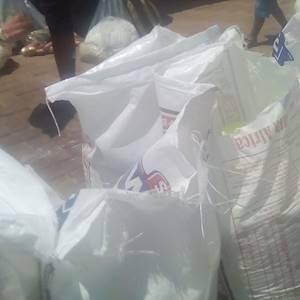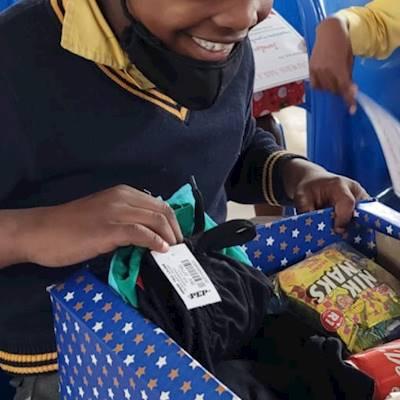Help Siyakholwa Support Care Centre by DONATING FOR FEEDING SCHEME PROJECTS 2220 OVC for MOBILE OVC FEEDING SCHEME

category
Food
sub-category
Non-perishable food
How can you help?
Help Siyakholwa Support Care Centre by DONATING FOR FEEDING SCHEME PROJECTS 2220 OVC for MOBILE OVC FEEDING SCHEME
Here's a little more info about this opportunity...
1. The majority of children (0-18years) and their Primary care givers(Youth,Women,Grannies and their siblings) in underprivileged communities live precariously as a result of many issues high levels of poverty unemployment, HIV/Aids which have been exacerbated by the global economic and financial crisis and little industrial growth, high incidence of disease, primarily HIV, Aids, Tuberculosis and skin disease due to malnutrition, 2. With an estimated 1 million people in disadvantaged communities living with HIV/AIDS epidemic is creating large number of children growing up without adult protection or financial support of 1.5 million are children nearly 92% have lost one or both parents. More than 448,000 children have lost both parents, while 122,000 children are estimated to live in child-headed household. Whereas most OVC live with and cared by grandparent or a great-grandparent, others are forced to assume caregiver and provider roles without adequate protection and care. These OVC are more susceptible to child labour and to sexual and other forms of exploitation increasing their risk of a acquiring HIV infection. 3. 90% of children living at Rondebult informal settlement are orphans and vulnerable and where not attending ECD, no primary care giver and secondary care giver, no mobile clinic library ,nutrition, food security, no support and parental lack of Knowledgement since most are ill due to up mentioned issues . Effective beneficiaries’ participation is practically indispensable to render a project successful 4. Monday to Saturday child support and developmental support with 9 full time employees and 21 volunteers (getting monthly stipend) (Job creation and sustainability plan} since there is no income from these families.Siyakholwa reached through services directly (mobilizing plan) targeting the poor household to collect these children using Home-visiting with capacity building training (Community Support structure) In so doing we promoted the creation of large number of jobs for these underprivileged communities( empowerment). For our OVC ECD and Drop-In programmes sector , We do not get any support and funding from Gauteng Government. 5. 99% of our beneficiaries are HIV positive ,Siyakholwa Support Care Center interfaces between HIV/AIDS beneficiaries and infectious diseases supporters and addressing their needs most effective responses to the HIV pandemic in disadvantaged communities.The organisation purpose is to directly address the HIV/AIDS pandemic by providing access to education,debate,information,treatment refferral , nutrition,food security ,job creation projects and families on-going support . All our Mobile programmes are in disadvantaged communities where HIV/AIDS,poverty are in high level and death rate is high due to lack of knowledge .We have played a central role in mobilising an affective,multi-sectoral response to poverty and HIV. we request support in means of foodstuff. non-perishable and perishable .we have letter of acceptability from Department of Health. for collections call Beauty 011 902 0042 / 011 0575706/0786906948
Similar opportunities
Helpful tips
Stay safe
- 1. Don’t pass any personal information to people you haven’t met offline before.
- 2. When meeting one of your contacts offline for the first time, always be sure to arrange to meet in a public place.
- 3. Make sure that you are not left alone with someone that you have never met before.
- 4. Know where you’re going. If you’re headed off the beaten track or into an unfamiliar part of town, be sure you have directions and a GPS or map book.
- 5. If you feel unsafe, consult the person in charge and let him or her know.
- 6. Avoid wearing expensive jewellery: it could get damaged, lost or stolen.
- 7. Ask, ask, ask! If you’re worried about something or concerned about your safety in a certain situation, ask the person in charge.


